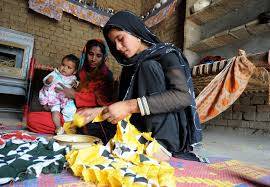
Having collaborated with various stakeholders and directly engaged with survivors of Sexual and Gender-Based Violence (SGBV), my most crucial insight underscores the necessity of empowering women economically. While financial independence alone does not guarantee immunity from psychological and physical abuse, it provides women with the strength and strategy to confront such challenges. This year's 16 Days of Activism Against GBV is centered on investing in preventing violence against women and girls.
Regardless of country or culture, more action is imperative to ensure women, in all their diversity, live free from violence and coercion. This period which starts from November 25 and lasts till December 10 also coincides with an infiltration of conferences, exhibitions, and a variety of other events to exhaust donors’ and sponsors’ money.
The term "entrepreneurship" is now in vogue, unlike the time when, as a young woman facing multiple vulnerabilities, I ventured into the less-travelled path of social entrepreneurship. While I appreciate the shift in economics, finance, and law—the three pillars of Ease of Doing Business (EOBD)—backed by major players in the social development industry, I harbour concerns.
My confidence in voicing these concerns is shared by many stakeholders, particularly women with limited means and no pedigree power in the entrepreneurship ecosystem. Unfortunately, a majority choose silence as an act of pragmatism, fearing repercussions for criticizing those who support them. Elites, including many class-biased and patriarchal women and men in powerful positions in UN agencies, IFIs, technical aid agencies, and chambers of commerce, seem united in sidelining the real issues faced by ordinary women aspiring to build their businesses.
Therefore, it is never surprising to see panellists and participants who are usually seen at the podiums and platforms generate powerful dialogues ( or are at least meant to) and create mainstream narratives that effectively exclude the anxieties that the likes of me have.
The universally known factors influencing a woman's propensity to become an entrepreneur include identity development, social support, role modelling, self-esteem development, and beliefs about the business world. These factors operate in the strangest ways in our homeland, setting aside the ranks of Pakistan on various indices like prosperity, gender inequality, female entrepreneurship index, and EOBD.
My worry is who will tell the true story in this atmosphere of thriving deception? And what is the truth of fintech, inclusion, empowerment of women, and encouraging their business ventures?
Based on my experiences, observations, and decades-long conversations and consultations with women without the privilege of class and networking, some key truths emerge:
1. Ageism in the Industry: Women above 40, especially those not in ideal physical shape, face ageism, particularly if they lack a strong support system or connections.
2. Role of Banks: Limited knowledge about obtaining loans through banks, teamed with negative experiences for those who manage to contact banks, poses obstacles. Gender-insensitive bank officials, usually men, subject women to doubt, Many women have shared that gentlemen at banks try to offend them with standard questions in an interrogative manner.
3. Registration of Business: The absence of categories like social enterprise, think tank, or social entrepreneurship in the registration protocol limits options to NGOs, companies, partnerships, and sole proprietorships. The latter is the most accessible and least expensive, but the other three options are often unaffordable for the majority of women engaged in business.
4. Feminist and Other Funding: Is it genuine or just a façade? Obtaining grants often requires a formal registration beyond sole proprietorship, excellent networking, and proficiency in English or access to a team that can develop proposals.
The challenge is to create circumstances that allow businesses by the masses in Pakistan not to be sidelined by the country's classes. However, the expensive efforts against violence targeting women, girls, and trans people seem more about maintaining power dynamics and serving the elite club's usual suspects.
What a joke or irony! Is this a circus or a serious work? The whole show of ending violence against women, girls, and trans people is about retaining power dynamics and revolves around the retention of the usual suspects of the elite club. The donor-driven dismantling of patriarchy and enabling the emancipation of women is in fact an illusion if not a scam. The real tragedy is that this SCAM can neither be detected nor proved. Market and economic elements align to perpetuate structural patriarchy and systemic elitism.
What winning strategy exists for women genuinely striving to initiate and lead entrepreneurial initiatives? Can grassroots women or seemingly modern urban middle-class women establish businesses dominated by political, civil, and military bureaucracies' families? I have yet to come across the honest answers.
I fear that the true story will remain untold. The greedy, selfish, and apathetic elite will persist in tapping all important resources, implementing their own vision to maintain the status quo, and most of the time promoting puppets as successful women entrepreneurs, leaders, and role models. This deflection may never understand the complexities of EOBD, and patriarchy would further prepare the systems to punish those taking alternate routes.

